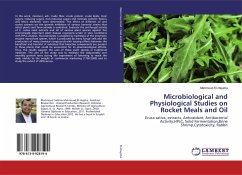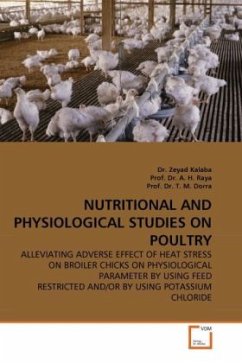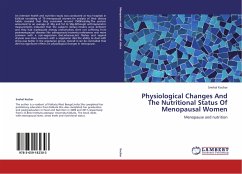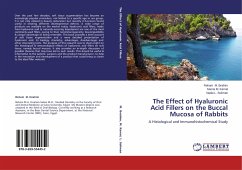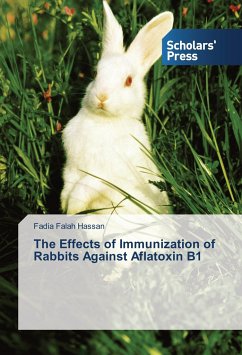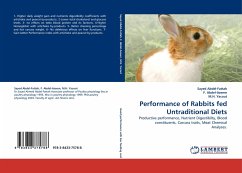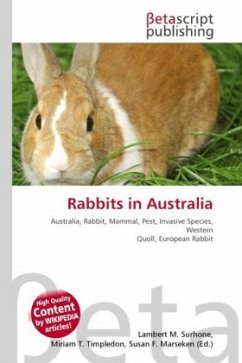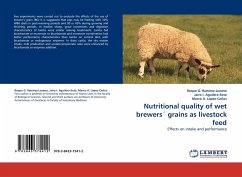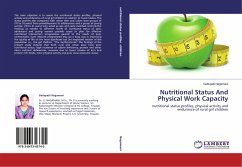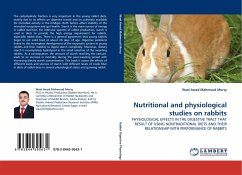
Nutritional and physiological studies on rabbits
PHYSIOLOGICAL EFFECTS IN THE DIGESTIVE TRACT THAT RESULT OF USING NONTRADITIONAL DIETS AND THEIR RELATIONSHIP WITH PERFORMANCE OF RABBITS
Versandkostenfrei!
Versandfertig in 6-10 Tagen
39,99 €
inkl. MwSt.

PAYBACK Punkte
20 °P sammeln!
The carbohydrate fraction is very important in the young rabbit diets, mainly due to its effects on digestive transit and on substrate available for microbial activity in the hindgut. Both factors affect stability of the microbial ecosystem and gut health. Starch is the main source of energy in rabbit nutrition. For intensive systems of rabbit production, starch is used in diets to provide the high energy requirement for rabbits, especially rabbit does. There is a general agreement that young rabbits begin to eat solid feed at about 20 days of age. Digestive problems linked to the incomplete d...
The carbohydrate fraction is very important in the young rabbit diets, mainly due to its effects on digestive transit and on substrate available for microbial activity in the hindgut. Both factors affect stability of the microbial ecosystem and gut health. Starch is the main source of energy in rabbit nutrition. For intensive systems of rabbit production, starch is used in diets to provide the high energy requirement for rabbits, especially rabbit does. There is a general agreement that young rabbits begin to eat solid feed at about 20 days of age. Digestive problems linked to the incomplete development of the enzymatic system in young rabbits and their inability to digest starch completely. Moreover, dietary starch is incompletely hydrolyzed in the small intestine of the weanling rabbits. As a consequence, the amount of starch reaching the caecum, leads to an increase in mortality during the post-weaning period with increasing dietary starch concentration. This book is assess the effects of different levels and sources of starch with different levels of crude fiber in diets of rabbit does in several physiological states and growing rabbit.



